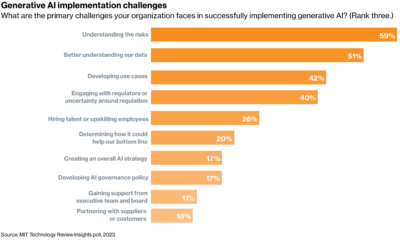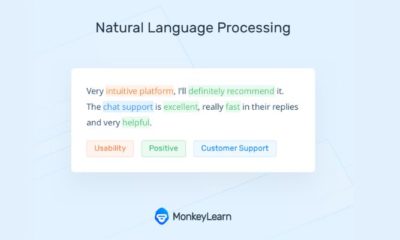Politics
Mastering High-Net-Worth Divorce Strategies
Published
7 months agoon
By
Drew Simpson
Going through a divorce is always a challenging experience, and it can become even more intricate and lengthy when it involves individuals with high-net-worth. Barron’s reported that a 2019 Martindale-Nolo Research study showed the average divorce duration is approximately one year. Nonetheless, 13% of the respondents disclosed that their divorces took more than two years to conclude. In some instances, particularly when extensive assets or complex matters like child custody are in play, divorces have even lasted between five and eight years, as observed by some advisors.
The complexity and duration of high-net-worth divorces often depend on several factors, including the level of cooperation and agreement between the two parties and the expertise of the lawyers involved.
Both parties must engage experienced legal counsel and communicate openly to streamline the process and avoid unnecessarily prolonging the emotional and financial distress accompanying such situations.
But let’s get real — you don’t need to worry about both parties — you need to worry about yourself and your business.
Understanding Financial Aspects
Financial aspects are crucial in divorce proceedings and often carry higher risks for affluent individuals. Financial professionals have provided these seven tips to help maneuver these complexities and offer direction.
First — have a clear understanding of your assets, liabilities, and overall financial standing — jointly and individually. This can be achieved by organizing and reviewing all relevant paperwork, financial statements, and records, as it sets the foundation for informed decision-making during the negotiations.
Tip 1: Obtain Expert Guidance
Working with experienced legal and financial professionals with expertise in high-net-worth divorces is essential. They can give thorough advice concerning asset division, tax ramifications, and settlement negations, ensuring a fair result for all parties involved.
Tip 2: Protect Your Assets — Repeat, Protect Your Assets
In high-net-worth divorces, securing your financial future is crucial by documenting all assets and income sources, obtaining accurate valuations, and safeguarding any separate property. This will help prevent any unwarranted distribution of your wealth and ensure you maintain the standard of living you are accustomed to.
Tip 3: Prioritize Open Communication
Both parties should maintain open lines of communication throughout the divorce process to maintain civility and work towards a mutually beneficial outcome. This minimizes conflict, helps each party understand the other’s perspective, and can lead to quicker resolution and a smoother transition into post-divorce life.
Tip 4: Emphasize Transparent Communication
Open conversations with your spouse about your financial ambitions and expectations can prevent disagreements and holdups. It is vital to be candid and open about your financial circumstances. Moving forward together requires understanding each other’s priorities, goals, and concerns related to money matters. Additionally, frequent check-ins and discussions will help maintain trust, foster mutual support, and encourage collaboration in handling your shared financial responsibilities.
Tip 5: Be Familiar with Your Assets, Before if Possible
Understand all jointly and individually owned assets, including real estate, investments, and business holdings. Acquiring a clear comprehension of your possessions will benefit the negotiations. By knowing the value and details of each asset, you can make better decisions and ensure a fair distribution during the settlement process. In addition, it can help to prevent potential misunderstandings and minimize conflicts as you work towards a mutually agreeable resolution, especially in a high-net-worth situation.
Tip 6: Refrain from Making Significant Financial Choices Hastily
Divorce can be emotionally draining, and impulsive financial decisions can have long-lasting consequences. Take your time to evaluate any choices that could affect your finances and seek expert advice before moving forward.
Tip 7: Create a Comprehensive Post-Divorce Financial Plan
Establishing a clear, well-thought-out financial plan for your post-divorce life is crucial to ensure stability and success. This plan should address budgeting, expenses, retirement goals, and emergency savings, allowing you to take control of your financial future effectively.
Post-Divorce Considerations
Even after the divorce, there might be financial matters you still need to work on together. Maintaining open and respectful communication can ease the process and aid in reaching amicable decisions, ultimately benefiting both parties.
Evaluating Tax Consequences — Get Professional Advice
Divorce can drastically impact your tax situation, so consult a financial expert to be aware of any potential tax repercussions regarding your assets and income. It is crucial to understand how filing statuses, exemptions, deductions, and the tax treatment of asset divisions, alimony, and child support may change following a separation. Proper evaluation and planning can help minimize negative tax consequences and ensure both parties are well-prepared for their new financial circumstances.
Reexamining Your Estate Plan
As your financial situation changes post-divorce, it is vital to update your estate plan accordingly. This should include adjusting your will, beneficiary designations, and any trusts or guardianship plans for minor children.
Additionally, consider revising the power of attorney and healthcare proxy documents to ensure the right person is designated to handle essential matters on your behalf. Engaging with a qualified estate planning attorney can provide guidance and expertise to ensure your estate plan accurately reflects your current circumstances and wishes.
Monitoring Your Credit During the Divorce Process
During and after the divorce, be vigilant in checking your credit report for any possible errors or fraudulent activities. Maintaining a strong credit score will be crucial for obtaining loans or mortgages in the future. Additionally, consider setting up alerts with credit monitoring agencies to ensure you receive prompt notifications of any changes to your credit. This proactive approach will help protect your financial well-being and allow you to address potential issues before they escalate.
Though divorce is never a simple procedure, following the above advice from financial specialists can minimize potential difficulties that arise when significant assets are involved and ensure a more equitable resolution for all parties concerned.
Taking the time to fully understand the financial implications of the divorce process and being prepared to make informed decisions can lead to a smoother transition during this challenging period.
It is crucial to maintain open communication, gather accurate information, and consult with experienced professionals to achieve an optimized outcome that fits the unique needs and circumstances of each individual involved in the divorce.
FAQs
What is the average duration of a divorce?
A 2019 Martindale-Nolo Research study discovered that the average divorce duration is approximately one year. However, 13% of the respondents disclosed that their divorces took more than two years to conclude.
Why is it essential to work with experienced professionals in high-net-worth divorces?
Working with experienced legal and financial professionals with expertise in high-net-worth divorces ensures thorough advice concerning asset division, tax ramifications, and settlement negotiations, leading to a fair result for all parties involved.
How does open communication benefit the divorce process?
Open communication throughout the divorce process minimizes conflict, helps each party understand the other’s perspective, and can lead to quicker resolution and a smoother transition into post-divorce life.
Why is it crucial to understand your assets in a divorce?
Understanding all jointly and individually owned assets, including real estate, investments, and business holdings, will benefit the negotiations. Knowing the value and details of each asset helps ensure a fair distribution during the settlement process and prevents potential misunderstandings.
What should be included in a post-divorce financial plan?
A post-divorce financial plan should address aspects such as budgeting, expenses, retirement goals, and emergency savings, allowing you to take control of your financial future effectively.
How can divorce impact your tax situation?
Divorce can drastically impact your tax situation, affecting filing statuses, exemptions, deductions, and the tax treatment of asset divisions, alimony, and child support. Proper evaluation and planning can help minimize adverse tax consequences and ensure both parties are well-prepared for new financial circumstances.
Why should you update your estate plan after a divorce?
As your financial situation changes post-divorce, it is essential to update your estate plan accordingly. This includes adjusting your will, beneficiary designations, and any trusts or guardianship plans for minor children. Revising power of attorney and healthcare proxy documents ensures the right person is designated to handle essential matters on your behalf.
Featured Image Credit: Photo by Cottonbros; Pexels; Thank you!
Deanna Ritchie
Managing Editor at ReadWrite
Deanna is the Managing Editor at ReadWrite. Previously she worked as the Editor in Chief for Startup Grind and has over 20+ years of experience in content management and content development.
You may like
-


Generative AI deployment: Strategies for smooth scaling
-


Top Strategies of Lead Generation for Technology Companies
-


5 Strategies for Overcoming Gender Bias in Entrepreneurship
-


AI-Powered Legal Research: Optimizing Strategies for Law Firms
-


Unlocking Big Success: Harnessing the Power of Integrated Search Marketing Strategies
-


3 Best Campus Recruitment Strategies to Embrace in 2023
Politics
Fintech Kennek raises $12.5M seed round to digitize lending
Published
7 months agoon
10/11/2023By
Drew Simpson
London-based fintech startup Kennek has raised $12.5 million in seed funding to expand its lending operating system.
According to an Oct. 10 tech.eu report, the round was led by HV Capital and included participation from Dutch Founders Fund, AlbionVC, FFVC, Plug & Play Ventures, and Syndicate One. Kennek offers software-as-a-service tools to help non-bank lenders streamline their operations using open banking, open finance, and payments.
The platform aims to automate time-consuming manual tasks and consolidate fragmented data to simplify lending. Xavier De Pauw, founder of Kennek said:
“Until kennek, lenders had to devote countless hours to menial operational tasks and deal with jumbled and hard-coded data – which makes every other part of lending a headache. As former lenders ourselves, we lived and breathed these frustrations, and built kennek to make them a thing of the past.”
The company said the latest funding round was oversubscribed and closed quickly despite the challenging fundraising environment. The new capital will be used to expand Kennek’s engineering team and strengthen its market position in the UK while exploring expansion into other European markets. Barbod Namini, Partner at lead investor HV Capital, commented on the investment:
“Kennek has developed an ambitious and genuinely unique proposition which we think can be the foundation of the entire alternative lending space. […] It is a complicated market and a solution that brings together all information and stakeholders onto a single platform is highly compelling for both lenders & the ecosystem as a whole.”
The fintech lending space has grown rapidly in recent years, but many lenders still rely on legacy systems and manual processes that limit efficiency and scalability. Kennek aims to leverage open banking and data integration to provide lenders with a more streamlined, automated lending experience.
The seed funding will allow the London-based startup to continue developing its platform and expanding its team to meet demand from non-bank lenders looking to digitize operations. Kennek’s focus on the UK and Europe also comes amid rising adoption of open banking and open finance in the regions.
Featured Image Credit: Photo from Kennek.io; Thank you!
Radek Zielinski
Radek Zielinski is an experienced technology and financial journalist with a passion for cybersecurity and futurology.
Politics
Fortune 500’s race for generative AI breakthroughs
Published
7 months agoon
10/11/2023By
Drew Simpson
As excitement around generative AI grows, Fortune 500 companies, including Goldman Sachs, are carefully examining the possible applications of this technology. A recent survey of U.S. executives indicated that 60% believe generative AI will substantially impact their businesses in the long term. However, they anticipate a one to two-year timeframe before implementing their initial solutions. This optimism stems from the potential of generative AI to revolutionize various aspects of businesses, from enhancing customer experiences to optimizing internal processes. In the short term, companies will likely focus on pilot projects and experimentation, gradually integrating generative AI into their operations as they witness its positive influence on efficiency and profitability.
Goldman Sachs’ Cautious Approach to Implementing Generative AI
In a recent interview, Goldman Sachs CIO Marco Argenti revealed that the firm has not yet implemented any generative AI use cases. Instead, the company focuses on experimentation and setting high standards before adopting the technology. Argenti recognized the desire for outcomes in areas like developer and operational efficiency but emphasized ensuring precision before putting experimental AI use cases into production.
According to Argenti, striking the right balance between driving innovation and maintaining accuracy is crucial for successfully integrating generative AI within the firm. Goldman Sachs intends to continue exploring this emerging technology’s potential benefits and applications while diligently assessing risks to ensure it meets the company’s stringent quality standards.
One possible application for Goldman Sachs is in software development, where the company has observed a 20-40% productivity increase during its trials. The goal is for 1,000 developers to utilize generative AI tools by year’s end. However, Argenti emphasized that a well-defined expectation of return on investment is necessary before fully integrating generative AI into production.
To achieve this, the company plans to implement a systematic and strategic approach to adopting generative AI, ensuring that it complements and enhances the skills of its developers. Additionally, Goldman Sachs intends to evaluate the long-term impact of generative AI on their software development processes and the overall quality of the applications being developed.
Goldman Sachs’ approach to AI implementation goes beyond merely executing models. The firm has created a platform encompassing technical, legal, and compliance assessments to filter out improper content and keep track of all interactions. This comprehensive system ensures seamless integration of artificial intelligence in operations while adhering to regulatory standards and maintaining client confidentiality. Moreover, the platform continuously improves and adapts its algorithms, allowing Goldman Sachs to stay at the forefront of technology and offer its clients the most efficient and secure services.
Featured Image Credit: Photo by Google DeepMind; Pexels; Thank you!
Deanna Ritchie
Managing Editor at ReadWrite
Deanna is the Managing Editor at ReadWrite. Previously she worked as the Editor in Chief for Startup Grind and has over 20+ years of experience in content management and content development.
Politics
UK seizes web3 opportunity simplifying crypto regulations
Published
7 months agoon
10/10/2023By
Drew Simpson
As Web3 companies increasingly consider leaving the United States due to regulatory ambiguity, the United Kingdom must simplify its cryptocurrency regulations to attract these businesses. The conservative think tank Policy Exchange recently released a report detailing ten suggestions for improving Web3 regulation in the country. Among the recommendations are reducing liability for token holders in decentralized autonomous organizations (DAOs) and encouraging the Financial Conduct Authority (FCA) to adopt alternative Know Your Customer (KYC) methodologies, such as digital identities and blockchain analytics tools. These suggestions aim to position the UK as a hub for Web3 innovation and attract blockchain-based businesses looking for a more conducive regulatory environment.
Streamlining Cryptocurrency Regulations for Innovation
To make it easier for emerging Web3 companies to navigate existing legal frameworks and contribute to the UK’s digital economy growth, the government must streamline cryptocurrency regulations and adopt forward-looking approaches. By making the regulatory landscape clear and straightforward, the UK can create an environment that fosters innovation, growth, and competitiveness in the global fintech industry.
The Policy Exchange report also recommends not weakening self-hosted wallets or treating proof-of-stake (PoS) services as financial services. This approach aims to protect the fundamental principles of decentralization and user autonomy while strongly emphasizing security and regulatory compliance. By doing so, the UK can nurture an environment that encourages innovation and the continued growth of blockchain technology.
Despite recent strict measures by UK authorities, such as His Majesty’s Treasury and the FCA, toward the digital assets sector, the proposed changes in the Policy Exchange report strive to make the UK a more attractive location for Web3 enterprises. By adopting these suggestions, the UK can demonstrate its commitment to fostering innovation in the rapidly evolving blockchain and cryptocurrency industries while ensuring a robust and transparent regulatory environment.
The ongoing uncertainty surrounding cryptocurrency regulations in various countries has prompted Web3 companies to explore alternative jurisdictions with more precise legal frameworks. As the United States grapples with regulatory ambiguity, the United Kingdom can position itself as a hub for Web3 innovation by simplifying and streamlining its cryptocurrency regulations.
Featured Image Credit: Photo by Jonathan Borba; Pexels; Thank you!
Deanna Ritchie
Managing Editor at ReadWrite
Deanna is the Managing Editor at ReadWrite. Previously she worked as the Editor in Chief for Startup Grind and has over 20+ years of experience in content management and content development.
